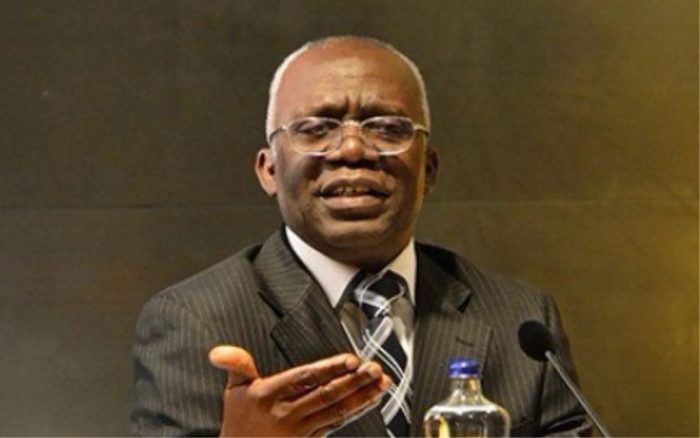Share!
Human rights lawyer Femi Falana, SAN, has slammed the floating of the naira by the Central Bank of Nigeria.
Falana also disclosed that he is challenging the decision to float the naira in court, noting that it is ‘illegal’.
On June 14, when the naira was trading at a range of 730 to 755 against the dollar at the Investors and Exporters window, the CBN allegedly instructed Deposit Money Banks to allow the naira to float freely against international currencies. Currently, according to the CBN website, the exchange rate is listed as N744 to N746.
However, speaking on Channels Television’s Sunrise Daily, on Friday, Falana argued that according to the CBN Act, the central bank is obligated to set the exchange rate.
“There’s no provision for floating the naira. It’s illegal. You say, ‘The value of the naira will be determined by market forces. That is not there in the law.
“I’ve had to sue the Central Bank of Nigeria at the Federal High Court because Section 16 of the Central Bank Act has imposed a duty on the Central Bank to fix and determine the rate of the naira vis-a-vis other currency,” he said.
Related News
10 key takeaways from CBN’s forex price verification system
Currency in circulation falls first time in five months
CBN unveils FX price verification system portal
According to Falana, Section 20(1) of the CBN Act states that the official legal tender in Nigeria is solely the currency notes issued by the Central Bank, specifically the naira. He further explained that Section 20(5) of the Act deems it an offense, punishable by six months imprisonment, for anyone to use any other currency in Nigeria without the approval of the central bank.
Falana explained that unless government officials take steps to strengthen the naira and establish it as the sole legal tender in Nigeria, our progress will be limited.
He also noted that the Federal Government’s approval of N5 billion for each state and the FCT as palliatives is a temporary measure intended to divert attention.
“They are temporary measures. Some of them are quite diversionary and the people in government have not addressed the root of the crisis, which is the dollarisation of the economy.
“Whatever palliatives that are announced will be eaten up by the dollarisation of the economy,” he said
